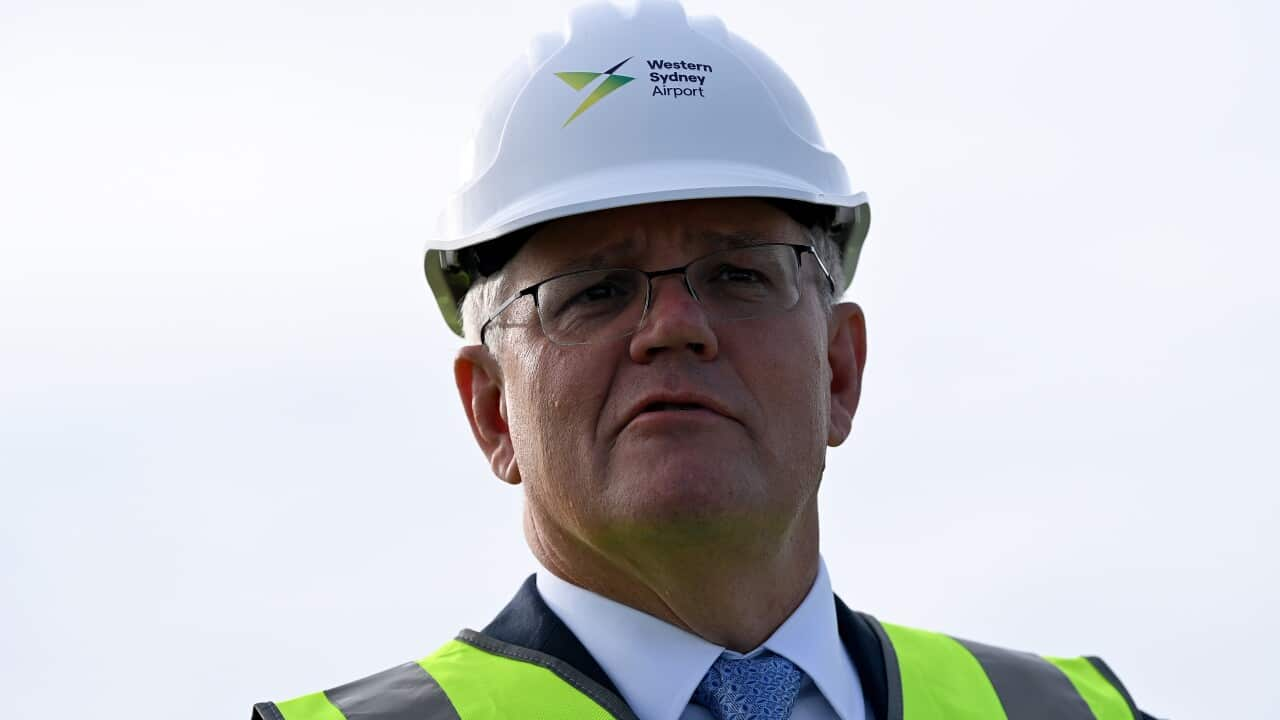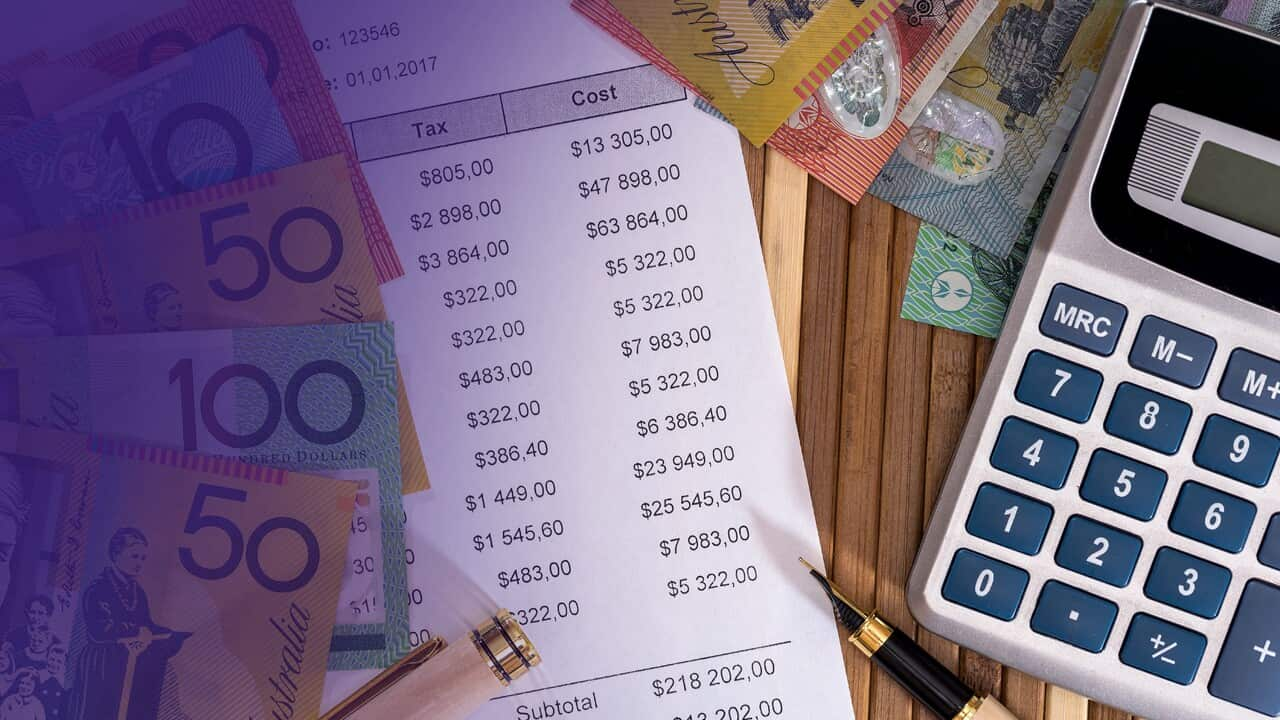As the Morrison government unveils billions in spending pledges on the eve of the federal budget, it’s being accused by Labor of making a last-ditched effort to distract voters.
The latest promises include almost $18 billion in spending on transport infrastructure as well as extending its Home Guarantee Scheme to make home ownership more affordable.
SBS News has also been told the budget will include a as part of a package aimed at easing cost of living pressures.
Prime Minister Scott Morrison said on Monday the challenge of rising expenses facing families would be addressed in the budget.
"This budget is about addressing the cost of living pressures being faced by Australian families," he told reporters in Sydney.
"It's about the long-term plan that Australians need to grow their economy and deal with the uncertainties that are ahead."
Tuesday night's federal budget is expected to set the scene for an economic debate between the Coalition and Labor that will last until the election in May.
The government is intent on fighting to retain office by delivering on economic management and by focusing on voters’ cost of living concerns.
But Labor argues costs are continuing to rise and people are being left behind.
Labor’s Treasury spokesperson Jim Chalmers said the budget showed “all the signs of a desperate government spraying money around” for its own interests.
“The prime minister only holds a hose if it’s spraying borrowed money on the eve of an election,” he told reporters.
But Labor Leader Anthony Albanese has indicated his party will “examine any proposal that assists with cost of living on its merit.”
“Cost of living is about your income in and then your costs out,” he said.
“The problem here is that the costs out have been going up and the income in through people's wages has been going down in real terms.”
Facing pressure to tackle soaring petrol prices Tuesday's budget is tipped to include a temporary reduction to the fuel excise.
The excise, worth 44 cents per litre, is due to rise later this year in line with inflation.
But it’s unclear how much relief a cut would provide to consumers in the wake of the global volatility of oil prices.
Greens Senator Nick Mckim has questioned the logic of cutting the excise tax in this uncertain environment.
“What the government is proposing could be wiped out almost overnight,” he told reporters.
“This proposal might end up making little or no difference to prices at the petrol pump.”
Housing policy
The government is also tapping into the aspiration of home ownership by extending its Home Guarantee Scheme.
The program will be almost doubled to 50,000 places per year, allowing eligible buyers to deposit just five per cent of the price of a dwelling to purchase a new or existing home.
Places for the Family Home Guarantee for single parents with a deposit of as little as two per cent will rise to 5,000 each year.
A new Regional Home Guarantee will support 10,000 people - including non-first home buyers and permanent residents - to build or purchase a new property in Australia's regions.
Associate Professor at the ANU, Ben Phillips, said the decision would help some break into the housing market, but also had limitations.
“For a small number of people it will assist them to get into the housing market where they otherwise wouldn’t be able to purchase a home,” he said.
“I don’t think it’s something that’s likely to necessarily turn the election but I think it would be viewed favourably by many people voting.”
In greater Sydney and major regional centres in NSW, buyers can only buy a property valued up to $800,000 and up to $600,000 in the regions.
In Melbourne, the scheme is capped at $700,000, in Queensland it's $600,000, while for the rest of the nation's capitals it's $500,000.
Property Council of Australia CEO Ken Morrison said the targeted nature of the program was appropriate.
“This is a well-targeted scheme — it’s now been extended and expanded quite considerably,” he said.
“But there does need to be other measures put in place to really truly affect housing affordability."
Infrastructure pledges
The government’s infrastructure spending is focused on building and upgrading roads and railway lines and builds on $110 billion in already-made pledges.
This includes some of the biggest commitments being made in Victoria, Queensland and Western Australia - all considered battleground states.
There is also more money for commuter car parks, similar to the 2019 election campaign, when millions of dollars were promised to car parks near train stations.
The latest announcement ahead of Tuesday's budget comes on top of a host of commitments in recent weeks worth tens of billions of dollars.
But Finance Minister Simon Birmingham has insisted the government’s spending plans will take into account the need to protect against overheating the economy by adding to inflationary pressures.
"This is a very carefully calibrated budget against an uncertain environment," he said.
While wage pressures remain, the Coalition's budget is expected to be focused on job creation when it’s revealed on Tuesday.





